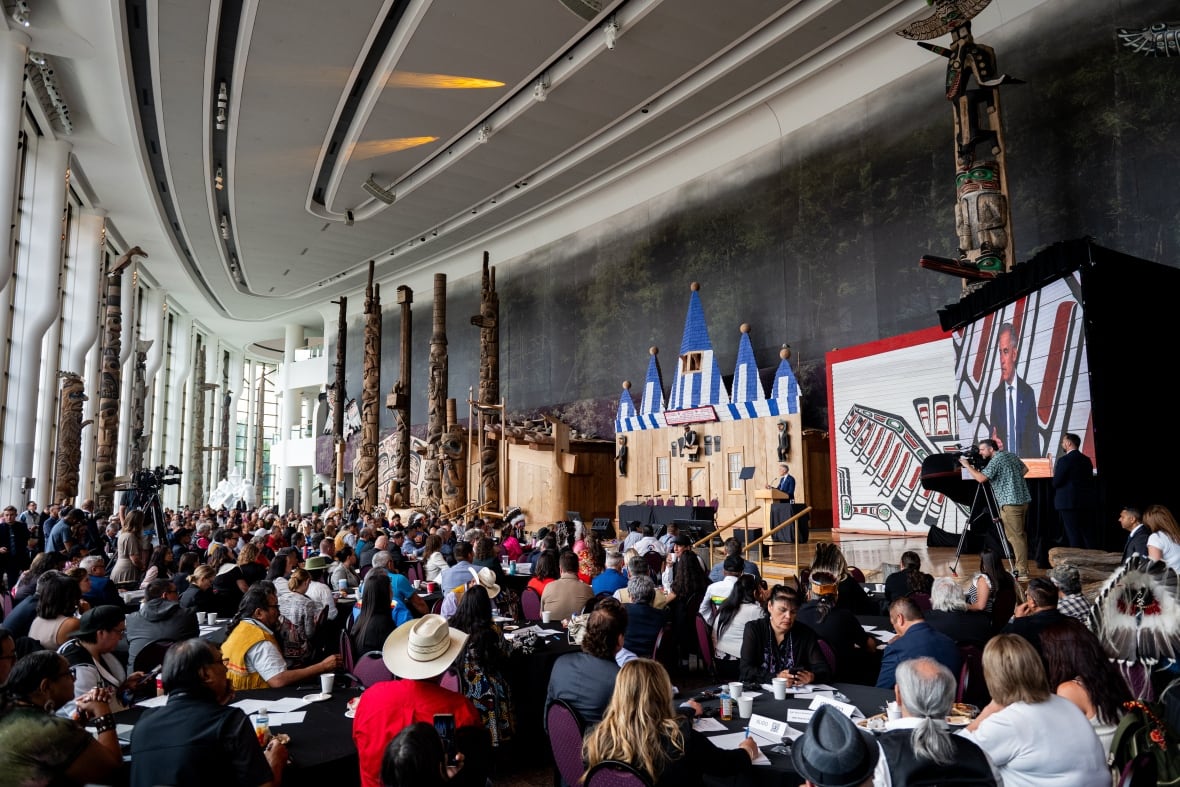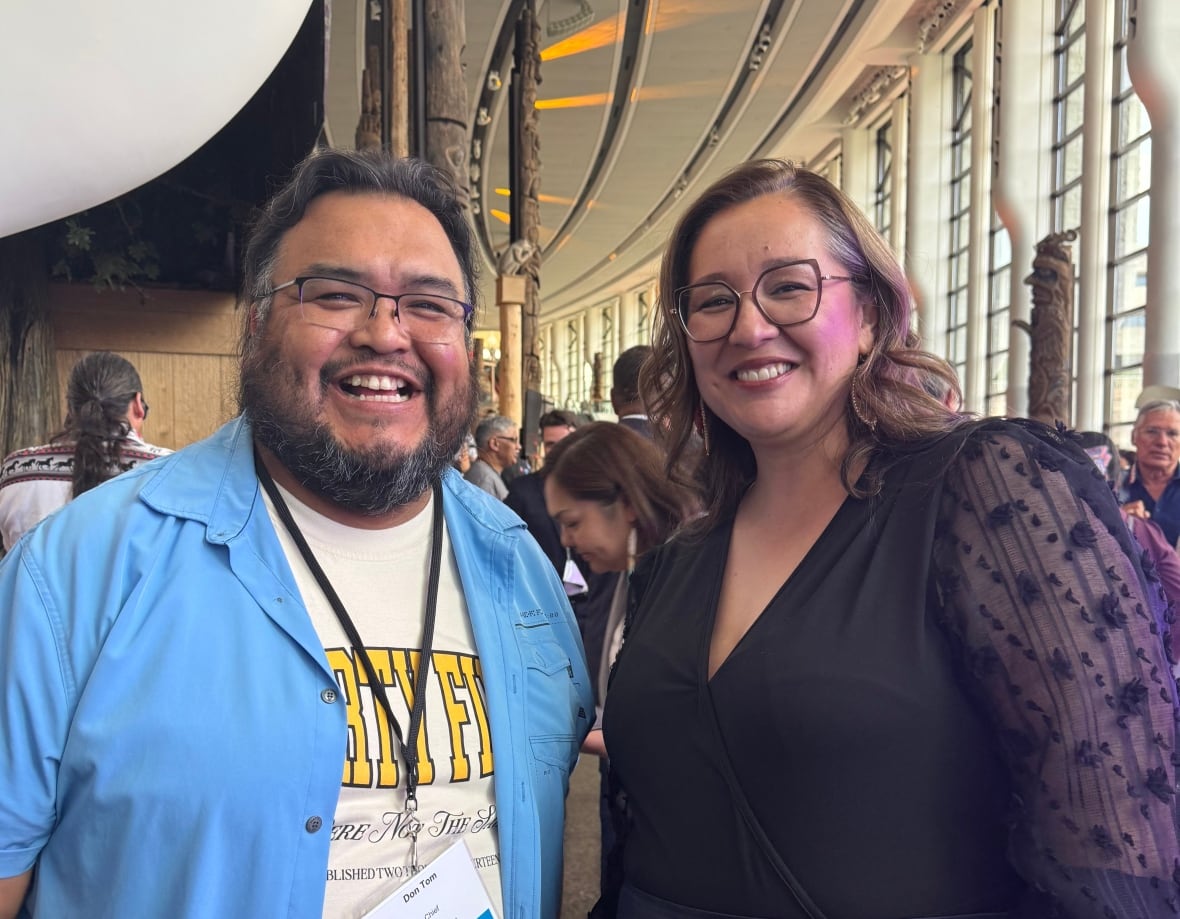Chiefs of First Nations in B.C. were among the more than 600 chiefs who travelled to Gatineau, Que., this week to meet with Prime Minister Mark Carney about the highly controversial Bill C-5.
The Building Canada Act, passed June 6, gives the federal government the ability to bypass certain laws, government regulations and environmental assessments if an industry project is deemed in the national interest.
The Union of B.C. Indian Chiefs (UBCIC) opposes Bill C-5, and the B.C. Assembly of First Nations (BCAFN) says most of the 204 nations in B.C are concerned about it.
Don Tom, vice-president of UBCIC, attended the meeting, which took place at the Canadian Museum of History, surrounded by totem poles from the West Coast.

Tom, who is also Chief of the Tsartlip First Nation on Vancouver Island, said despite many First Nations being opposed to the bill, the majority of those given a chance to speak supported it.
“From the opening of the meeting, it was evident that those who were project-friendly were given the platform to speak,” Tom told CBC News.
“The prime minister was clear that this was not consultation but rather engagement; I think the general feeling amongst chiefs is that the government is a day late and a dollar short.”
Prime Minister Mark Carney, speaking from Hamilton on Wednesday, says his government is now engaging with First Nations before any specific projects are being discussed.
He says that consulting First Nations after the legislation has already passed is not meaningful.
UBCIC is an advocacy organization for First Nations in B.C. and a member organization of B.C.’s First Nations Leadership Council. In a press release, it states that chiefs across the room made it clear that First Nations in Canada continue to be excluded from decision-making tables as it pertains to their land, rights and resources.

“Canada cannot build economic recovery on the backs of Indigenous Nations without our consent, our participation, and our laws being respected,” Tom said in the release.
He says that B.C. and Canada have broken their own United Nations Declaration on the Rights of Indigenous People (UNDRIP) laws.
“We will not be legislated to, we will uphold our Title and Rights recognized under section 35 of the Constitution. We are the First Peoples of the Land, we are not Canada’s Indians,” he said.
Terry Teegee, regional chief of BCAFN, shared similar sentiments. BCAFN advocates for the 204 First Nations in the province and is also a member organization of B.C.’s First Nations Leadership Council.
B.C. Assembly of First Nations Regional Chief Terry Teegee says lawmakers should not skirt around environmental assessments to fast-track major projects. He tells BC Today host Michelle Eliot that any response to the trade war with the U.S. must also uphold Indigenous rights.
In an interview on CBC’s B.C. Today, Teegee said that the general sentiment of many First Nations across the country is that there are concerns about what a national interest project actually entails.
“Bill C-5 does not acknowledge or recognize a consultation process, nor a consent-based process for First Nations,” he said.
He says that B.C.’s Bills 14 and 15, as well as the federal Bill C-5, should have been co-developed in partnership with First Nations, under provincial and federal UNDRIP legislation.
“We’re heading to challenges in the court system,” he said.
A BCAFN press release states that the majority of chiefs in B.C are concerned about the lack of transparency regarding the Canada Building Act, and concerned about their rights.
“If this Act is to be saved, and if Canada is to avoid costly legal battles, Prime Minister Carney will need to make substantive and concrete commitments to legislative, regulatory and policy protections to ensure the standards of the UN Declaration are upheld.”
Tom says Carney stayed for the entire summit, which is rare for a prime minister, and that he assured First Nations that more consultation would be coming.


